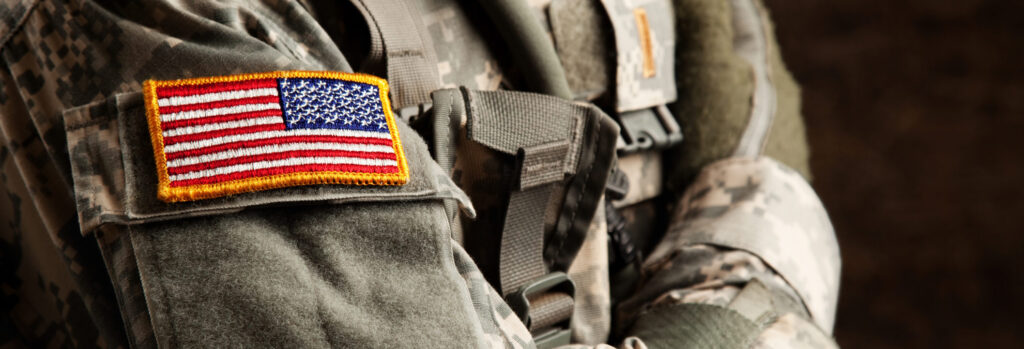
Revised Act Expands Protections to Service Members Called to Duty
With the increased numbers of men and women serving our country, creditors should be mindful of the protections provided by law for those who have been called to active duty. Congress recently revised the former Soldiers’ and Sailors’ Civil Relief Act of 1940 into what is now called the Service Members’ Civil Relief Act (“SCRA”). Given the voluminous and at times confusing nature of the SCRA, creditors should reacquaint themselves with the protections afforded to service members and become familiar with the recent revisions.
The purpose of the SCRA is to provide, among other things, for the temporary suspension of judicial and administrative proceedings and transactions that may adversely affect the rights of service members during their military service. Generally, the SCRA applies to those service members who are involved in active military service. The SCRA provides protection not only to members of the Army, Navy, Air Force, Marine Corps and Coast Guard during their period of active military service, but also to those in the Public Health Service and the National Oceanic and Atmospheric Administration. In the case of the National Guard, active duty includes service under a call to active service authorized by the President or the Secretary of Defense for a period of more than 30 days. The SCRA applies only to civil and not to criminal proceedings.
The SCRA incorporates and expands the protections of the previous Act. For instance, the SCRA provides a service member with the opportunity to temporarily suspend a Court proceeding for a minimum of 90 days if the service member’s military service requirements “materially affect” his ability to defend the action. The debtor may reapply for an additional stay if necessary, or may request the appointment of counsel to represent the service member in the proceeding. While the civil action is stayed, the SCRA provides that penalties shall not continue to accrue on the debt — that is, the creditor may not continue to charge interest or other late charges on the account. In an effort to level the playing field for the parties, the SCRA further provides that the statute of limitations will automatically be tolled for both the creditor and the debtor while the service member is on active duty. This serves to maintain the status quo for the parties until the service member returns from active duty and is again in a position to defend against the lawsuit. A similar suspension or stay may be imposed by the Court if the service member’s military service impacts his ability to comply with a court order or judgment.
The SCRA also provides that prior to obtaining a default judgment, an affidavit must be filed by the creditor which states whether the defendant is in military service. For members of the reserves, Congress now affords an expanded period of time within which one may receive the protections of the SCRA. The prior act did not allow a reservist to seek the protections of the Act until the date that he or she reported for service. The SCRA now allows a reservist to seek the protections of the Act from the time that he or she receives notice to report for military service.
Creditors also must be aware that the SCRA extends protections not only to those directly called to military service, but also to dependents and those who may be secondarily liable for a debt. The SCRA has expanded the definition of a dependent to include a service member’s spouse, child or an individual receiving more than half of his or her support from the service member. The SCRA also extends protections in certain situations to sureties, guarantors, or others who may be secondarily liable for a debt.
Another provision of interest is the “six percent rule.” This section may apply to obligations ranging from credit card accounts to vehicle loans, and provides for a maximum rate of interest on debts incurred before military service. The SCRA provides that an obligation or liability bearing interest at a rate in excess of 6 percent per year that is incurred before the service member enters military service shall not bear interest at a rate in excess of 6 percent per year during the period of military service. The interest at a rate in excess of 6 percent per year that would otherwise be incurred but for the obligor’s military service is forgiven.
The SCRA provides that the service member may apply for the interest rate cap by providing written notice to the creditor within 180 days of the termination of the debtor’s military service. In the event such a notification is received, the interest rate cap is retroactive to the first day of service.
Can a debtor or co-obligor waive his or her rights under the Act? Yes, but only after military service commences. The debtor cannot waive his or her rights within the boilerplate language of the original contract. The waiver must be in a separate writing. It is important to note that the following actions require written waivers if a debtor is in active military service:
- modification, termination, or cancellation of any contractual obligations
- repossession, foreclosure, or taking possession of property that is security for any obligation or was purchased or received under the service member’s contract with the creditor
The SCRA also provides protections in the extension and preservation of credit. The application by a service member for the stay, postponement, or suspension of any obligation pursuant to the Act may not, in and of itself, provide the basis for:
- a denial or revocation of credit
- a change in the terms of an existing credit arrangement, unless requested or consented to by the service member debtor
- an adverse report relating to the creditworthiness of the service member
The above highlights some of the potential issues that may be confronted by a creditor when dealing with a service member called to duty. Whenever there is reason to believe that an individual is a service member, a creditor should proceed with extreme caution. Failure to familiarize oneself with the content of the SCRA and abide by its provisions may result in statutory penalties. If you have occasion to extend credit to members of the active military service, we encourage you to contact legal counsel when confronted with situations involving the various provisions of the Service Members’ Civil Relief Act.

